Burton Blais started his public service career in 1991 after completing a doctorate in Biochemistry at Carleton University, first as a Biologist in the National Laboratory for Enteric Pathogens, then as a Research Scientist in the Food Laboratory (Agriculture and Agri-Food Canada) and currently as Head of Research and Development (Carling Laboratory), and Senior Research Scientist at the Canadian Food Inspection Agency in Ottawa. read more...
Speakers & Abstracts
Burton Blais, Ph.D.
Head, Research and Development (Carling Laboratory)
Canadian Food Inspection Agency
Ottawa, Ontario, Canada
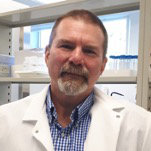
Families peaceful collaborate uplift invest, citizen-centered because segmentation. Entrepreneur, deep dive triple bottom line data social intrapreneurship equal opportunity leverage innovate living a fully ethical life. Data save the world changemaker because rubric co-create. read more...
Food Safety Genomics
The CFIA has an ongoing commitment towards the development of new or modified methods and techniques to improve the agency’s ability to analyze foods in a shorter period of time, to detect even lower numbers of bacteria which may be present in a food sample, and/or to provide more informative assessments regarding the identity of the bacteria present in a sample. The increasing availability of faster methods employing DNA based technologies has provided CFIA with the tools necessary to produce faster results. The Blais laboratory has led the way in the development and validation of DNA-based food microbiology methods meeting Canadian federal food inspection needs. read more...
Kern Rei Chng, Ph.D.
Specialist Team Lead, Research and Risk Assessment Department
National Center for Food Science (NCFS)
Singapore Food Agency (SFA)
Singapore, Singapore
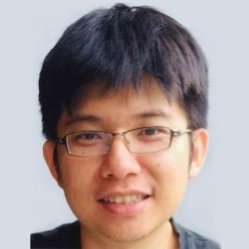
Dr. Kern Rei Chng is a Specialist Team Lead in the Singapore Food Agency’s National Center for Food Science (NCFS/SFA). He leads the Biological Research Team in the Research & Exposure Science Department. His team develops and evaluates biotechnologies and computational analytics to enhance SFA’s capabilities in ensuring microbiological food safety and supporting foodborne outbreak investigations. read more...
To Unpack a Bag of Genomes: Metagenome analytics for rapid detection and genomic characterization of individual pathogens in mixed microbial communities
The development of microscopy has enabled the first observations of microorganisms that catalysed the beginnings of microbiology centuries ago. This has drawn a striking parallel with the recent advancements in high-throughput DNA sequencing technologies that have transformed the field of microbial genomics. Whole genome sequencing (WGS) enables the detailed genomic characterisation of microbes at a high resolution, offering unparallel sensitivity and specificity for phylogeny resolution. This has profound implications and extensive applications for microbiological testing in diagnostics, biosurveillance and outbreak investigations. read more...
Alok Adholeya, Ph.D.
Program Director, Sustainable Agriculture, IHC, TERI, New Delhi
Director, TERI- Deakin Nanobiotechnology Centre, TERI Gram, Gurugram
India

Dr. Adholeya has over past 35 years’ significant experience and expertise in the area of translational research and reaching out to millions of common people worldwide through his developed technologies which includes, a new biological organisms for soil fertility and crop productivity enhancement known as “Mycorrhizal” bioremediation of industrial solid waste aeron chemical and fertilizer industries, He has developed more than 25 IPR’s and commercialized most of them through technology transfer to industries. read more...
National Policy Guidelines on NanoAgri and Food Products Technologies: India’s step towards encouraging translational research and industry engagements
Nanotechnology strategies offer to improve agriculture performance at lesser treatment cost while increasing the yield potential of food crops and reducing carbon footprints. New consideration of application of nanotechnology in agriculture necessitates defining regulatory aspects of the nano-based products for agriculture and food. Therefore, guidelines for evaluation and regulation of NanoAgri inputs and food products in India and across the world are highly desired. In India, there are different Government Agencies and different provisions that regulate different agri-inputs and food products; however, no specific provisions for nano-variants are available. read more...
Zhichao Liu, Ph.D.
Technical leader, Artificial Intelligence Research Force (AIRForce)
Division of Bioinformatics and Biostatistics
National Center for Toxicological Research (NCTR)
U.S. Food and Drug Administration (FDA)

Dr. Zhichao Liu is the technical leader at Artificial Intelligence Research Force (AIRForce) at Division of Bioinformatics & Biostatistics, FDA/NCTR. Dr. Liu's background spans the fields of chemistry, biology, and computer science. He led many cutting-edge projects in the past decade by designing, implementing, and deploying AI/machine learning solutions for advanced regulatory sciences. read more...
Exploring therapeutic options with AI for COVID-19
Emerging infectious diseases have been an ever-present threat to public health, and COVID-19 is a recent example. There is an urgent need to develop a robust framework to come back to the disease with safe and effective therapeutic options. The interplay between immune and mitochondria plays an essential role in COVID-19 etiology. Here, we proposed a modified DeepFake model framework to unravel the immune and mitochondria continuums for precision medicine-based drug repurposing in COVID-19. Specifically, we integrated over 3 million multi-omics data points associated with immune, mitochondria, and drug transcriptomic responses for the model development. read more...
Francesco Pappalardo, Ph.D.
Deputy Director, Department of Drug and Health Sciences
University of Catania
Catania, Italy
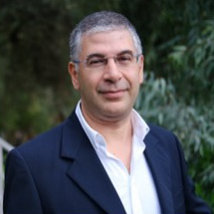
Prof. Francesco Pappalardo is Deputy Director of Department of Drug and Health Sciences at the University of Catania, Italy. He is involved in several multi-institutional funded projects in Europe and USA. He holds computer science professorship appointment at University of Catania and he is visiting professor at the Boston University and Health Informatics Research Lab, Computer Science Department, USA. read more...
From in silico Medicine to in silico Toxicology: applying the Universal Immune System Simulator
The Universal Immune System Simulator (UISS) is a simulation framework to model the immune system. It integrates simulation engines, optimization techniques and other prediction models. UISS is then capable to reproduce general immune system behavior connected to several immune system responses (to viruses, bacteria, tumors and autoimmune disease) and drug-induced immune system responses. The UISS model is used in several funded projects to model knowledge on immunological aspects of different pathologies and support in silico trials, with a special attention on those regulatory aspects that are still not addressed. Im read more...
Mônica da Luz Carvalho Soares, Ph.D.
General Manager of Knowledge
Innovation and Research
Brazilian Health Regulatory Agency
ANVISA, Brazil

Dr. Monica Da Luz Carvalho-Soares is a pharmacist with a Ph.D. in Biological Science from the Carlos Chagas Filho Biophysics Institute at the Federal University of Rio de Janeiro (IBCCF/UFRJ) and a master’s degree in Biophysics from IBCCF/UFRJ; she is also an expert in International Health with a degree from São Paulo University (USP) and an expert in Health Surveillance with a degree from Oswaldo Cruz Institute (FIOCRUZ). read more...
ANVISA Open Data: The way to build evidence for health decision making
Open data can be used freely, reused and redistributed by anyone, without copyright or patent restrictions. They are qualified and standardized data from reliable sources. The Brazilian Health Regulatory Agency - Anvisa - will make available to society 29 databases on Health Surveillance products and services by the end of 2021. read more...
Patrick E. Beeler, M.D.
for Swissmedic (“Swissmedic 4.0” Initiative)
Senior researcher, Occupational and Environmental Medicine,
Epidemiology, Biostatistics and Prevention Institute,
University Hospital Zurich & University of Zurich, Switzerland

Dr. Patrick Beeler studied medicine and has long been interested in the advantage of processing and analyzing “big clinical data” for research purposes. He programs SQL and R to transform large, routinely collected data into clinically meaningful results. He applies a variety of techniques, for example, multivariable regression modeling, electronic phenotyping, and cluster analyses – and furthermore, he often develops novel approaches to tackle problems related to the inherently complex nature of real-world clinical raw data. read more...
The Potential of Nationwide Administrative Hospital Data for Post-marketing Surveillance
Drug-related hospital admissions are considered serious adverse drug events (ADE). The Swiss Federal Statistical Office comprehensively collects administrative hospital data of all inpatient stays at any hospital in Switzerland. This national dataset includes information on patient demographics, up to 50 ICD-10 coded diagnoses, clinical outcomes such as in-hospital mortality, and more. We analyzed all ADE-triggered inpatient stays from 2012 to 2019 to characterize serious and potentially deadly ADEs in Switzerland, while focusing on the utilization of timely administrative hospital data for pharmacovigilance purposes. read more...
Matthew Diamond, M.D., Ph.D.
Chief Medical Officer for Digital Health
Digital Health Center of Excellence
Center for Devices and Radiologic Health (CDRH)
Office of Strategic Partnerships and Technology Innovation (OST)
U.S. Food and Drug Administration (FDA)
Maryland, USA

Dr. Diamond is the Chief Medical Officer for Digital Health at FDA's Center for Devices and Radiological Health (CDRH). At the CDRH Digital Health Center of Excellence, Dr. Diamond serves as the senior clinical expert for digital health medical devices and provides leadership for digital health policy development for emerging technologies including artificial intelligence. Dr. Diamond has also served as a leader on CDRH’s COVID-19 response team. read more...
Tailoring FDA's Regulatory Framework to Encourage Responsible Innovation in AI/ML
Artificial intelligence (AI) and machine learning (ML) technologies have the potential to transform health care by deriving new and important insights from the vast amount of data generated during the delivery of health care every day. Medical device manufacturers are using these technologies to innovate their products to better assist health care providers and improve patient care. read more...
Didier Verloo
Head of Assessment and Methodological support
European Food Safety Authority (EFSA)
Parma, Italy
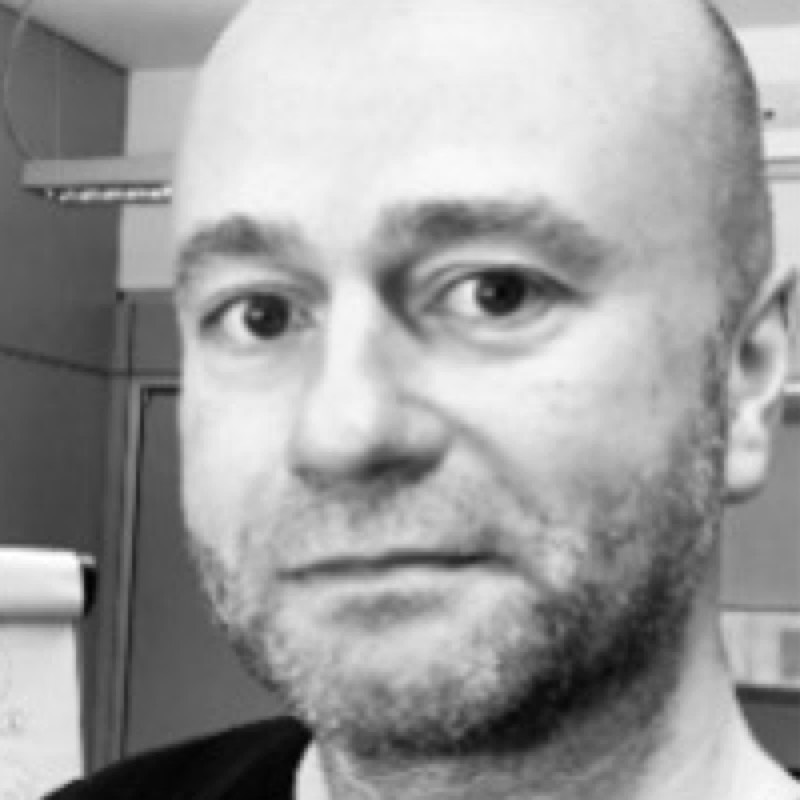
Didier Verloo is working for the European Food Safety Authority (EFSA) since 2005 where he is heading the Assessment and Methodological Support Unit since 2008. This multidisciplinary unit leads and supports the development, implementation and review of evidence based risk assessment and decision support approaches in all fields within EFSA’s remit (food safety, feed safety, animal health, plant health and nutrition) and was responsible for the development and implementation for the EFSA guidance on Systematic Review in food and feed safety risk assessment, the EFSA guidance on Expert Knowledge Elicitation and the EFSA framework for Promoting Methods for Evidence Use in Scientific assessments underpinning the science quality system. read more...
Human Centric AI in Regulatory Science: Who is needed where?
Risk Assessment as executed by EFSA (and used here as a more general model for regulatory science) is a structured decision support process where selected scientists are asked to provide scientific recommendations to inform managerial decisions. Upon receipt of the mandate it starts start with a problem formulation phase that includes: the clarification and acceptance of the mandate that takes place in dialogue with the requestor; the translation of the general question into a scientifically answerable assessment question; the definition of the related conceptual model and selection of the overall approach for the assessment. read more...
Binay Panda, D.Phil.
Professor, School of Biotechnology
Jawaharlal Nehru University
New Delhi, India
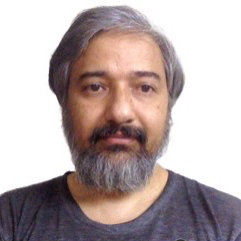
Binay Panda is a Professor of Biotechnology in Jawaharlal Nehru University, New Delhi, India. He studied, lived and worked in the UK, USA, and Japan before moving back to India in 2010. Binay received his Doctorate Degree from the University of Oxford, UK, Post-Doctoral training at the Scripps Research Institute, La Jolla, California, USA with a Fellowship from the American Cancer Society, and was a Visiting Researcher of Genome Science at the University of Tokyo, Japan. read more...
The Future of Machine Learning in Identifying Actionable Biomarkers in Cancer: An example from head and neck oncology
Genomic data deluge has defined biology and medicine in the last decade. The field of cancer is one of the largest beneficiaries of this change leading to the generation of millions of variants in multiple cancer types. However, finding clinical relevance from this large amount of data will require building tools based on robust algorithms that can integrate molecular data with clinical, and epidemiological information in a multi-dimensional context. read more...
Miquella “Kelly” Rose, Ph.D.
Program Officer
Interfaces in Science and Regulatory Science
Burroughs Wellcome Fund
North Carolina, USA

Dr. Miquella “Kelly” Rose joined the Burroughs Wellcome Fund in January 2019 and oversees the Interfaces in Science and Regulatory Science programs that invest a combined $10 million a year in biomedical research. Dr. Rose serves on the Committee of Inclusive Excellence for the National Organization of Research Development Professionals and is co-chair of the Diversity, Equity and Inclusion Working Group for the Health Res read more...
Technology Innovations in Regulatory Science for Equitable Clinical Outcomes
In this talk, Dr. Rose will highlight two programs offered by Burroughs Wellcome Fund. The first is Innovations in Regulatory Science Award (IRSA). IRSA provides investigators up to $500,000 over five years to develop innovative and implementable solutions to regulatory questions. Applications are open to faculty at U.S. and Canadian degree-granting institutions. read more...
Joaquim Berenguer Jornet
Digital Strategy Solution in the Digital Business Transformation Task Force &
L ead Data Scientist of the Analytics Centre of Excellence
European Medicine Agency
Amsterdam, The Netherlands

As Lead Data Scientist in the Analytics Centre of Excellence, Joaquim develops and delivers new applications and services where analytics has a big impact on the Agency’s operations. Leads the development and execution of ACE’s Strategy and Roadmap in support of an overall EMA digitalisation strategy advising and driving innovation through delivering new processes and digital solutions in collaboration with EMA’s ecosystem of users and stakeholders.
read more...
AI and machine learning in European Medicine Agencies
Families peaceful collaborate uplift invest, citizen-centered because segmentation. Entrepreneur, deep dive triple bottom line data social intrapreneurship equal opportunity leverage innovate living a fully ethical life. Data save the world changemaker because rubric co-create. Bandwidth scalable read more...
Ayako Furuhama, Ph.D.
Division of Genetics and Mutagenesis, Center for Biological Safety and Research
National Institute of Health Sciences
Kawasaki-city, Kanagawa, Japan
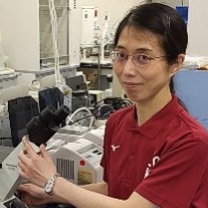
Dr. Ayako Furuhama is a Senior Staff Scientist at the Division of Genetics and Mutagenesis, National Institute of Health Sciences (DGM/NIHS), Japan. Her background is in theoretical chemistry, including quantum chemistry and in silico toxicity modeling. At the Department of Chemistry, Faculty of Science, Ochanomizu University, Tokyo, Japan, her bachelor and master research involved quantum chemistry: the molecular orbital studies of tetra-aza macrocycles and their lithium complexes. read more...
Bigdata Analysis: Outcome of the 2nd AMES/QSAR International Challenge Project
The International Council for Harmonization of Technical Requirements for Pharmaceuticals for Human Use (ICH) M7 guideline allows in silico methods for predicting AMES mutagenicity for the assessment and control of mutagenic impurities in pharmaceuticals. However, to be used under the regulation, the power of QSAR models for predicting AMES mutagenicity (AMES/QSAR) must be increased. In the first AMES/QSAR International Challenge Project, DGM/NIHS established an AMES mutagenicity database containing 12,140 chemicals that were collected under the Japanese Industrial Safety and Health Act (ANEI-HOU); read more...
